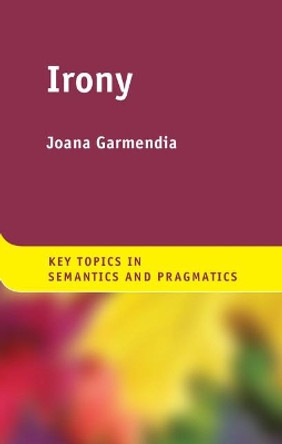Irony is an intriguing topic, central to the study of meaning in language. This book provides an introduction to the pragmatics of irony. It surveys key work carried out on irony in a range of disciplines such as semantics, pragmatics, philosophy and literary studies, and from a variety of theoretical perspectives including Grice's approach, Sperber and Wilson's echoic account, and Clark and Gerrig's pretense theory. It looks at a number of uses of irony and explores how irony can be misunderstood cross-culturally, before delving into the key debates on the pragmatics of irony: is irony always negative? Why do speakers communicate via irony, and which strategies do they usually employ? How are irony and sarcasm different? Is irony always funny? To answer these questions, basic pragmatic notions are introduced and explained. It includes multiple examples and activities to enable the reader to apply the theoretical frameworks to actual everyday instances of irony.
An accessible introduction to the pragmatics of irony that presents the main theoretical approaches and central discussions of the analysis of ironic communication.About the AuthorJoana Garmendia is an assistant professor at the Department of Basque Language and Communication of the University of the Basque Country, Bilbao. She is the assistant secretary of the journal GOGOA -the Institute for Logic, Cognition, Language, and Information (ILCLI) journal, which is devoted to the study of language, knowledge, communication, and action -, and a member of the research group Language, Action, and Thought at the ILCLI.
Book InformationISBN 9781107465916
Author Joana GarmendiaFormat Paperback
Page Count 178
Imprint Cambridge University PressPublisher Cambridge University Press
Weight(grams) 230g
Dimensions(mm) 215mm * 140mm * 10mm




